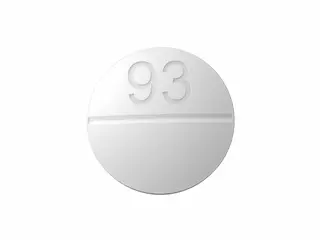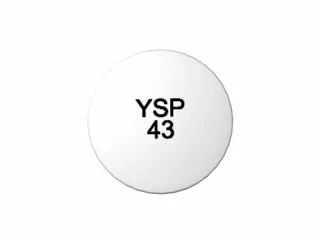Gastrointestinal Health
Discover a wide range of effective supplements and medications designed to support digestive health, relieve discomfort, and promote overall gastrointestinal wellness. Shop now for trusted products that help maintain balance and improve digestion.
Gastrointestinal health is essential for overall well-being. Many people face issues like acid reflux, irritable bowel syndrome (IBS), diarrhea, and ulcers. Medications in this category help manage these conditions effectively. Here is a review of popular medications available for gastrointestinal health.
Aciphex is used to treat gastroesophageal reflux disease (GERD) and stomach ulcers. It reduces stomach acid by blocking proton pumps. The effect lasts long and helps heal erosive esophagitis. Side effects are usually mild, including headache and diarrhea. It is taken once daily before meals.
Asacol contains mesalamine. It is used mainly for ulcerative colitis. It reduces inflammation in the colon. Asacol helps maintain remission and prevents flare-ups. Common side effects include nausea and abdominal pain. It is usually taken several times a day with food.
Colospa (also known as Mebeverine) is an antispasmodic medication. It relieves cramps in the intestines often caused by IBS. Colospa works by relaxing smooth muscles in the gut. It has few side effects and is generally well tolerated. It can be taken before meals or as directed by a doctor.
Imodium is an effective solution for diarrhea. It slows down bowel movements by affecting gut nerves. This allows more water absorption and firmer stools. Imodium is fast-acting and reduces discomfort quickly. However, it should not be used if there is suspected infection or blood in stools.
Maxolon (Metoclopramide) helps with nausea and gastric motility issues. It increases movements in the upper digestive tract, aiding food to pass more quickly. Maxolon is useful in cases of gastroparesis and vomiting. Side effects may include drowsiness and restlessness.
Motilium (Domperidone) is similar to Maxolon. It improves stomach emptying and reduces nausea. It differs as it does not cross the blood-brain barrier, so fewer central nervous system side effects occur. Motilium is often used before meals to ease digestion.
Nexium is another proton pump inhibitor like Aciphex. It treats GERD, Zollinger-Ellison syndrome, and ulcers. Nexium effectively lowers stomach acid and promotes healing. It is usually taken once daily, with or without food. Long-term use requires monitoring by a healthcare professional.
Pentasa is another mesalamine-based medication. It is used to manage ulcerative colitis and Crohn’s disease. Pentasa releases mesalamine throughout the colon to reduce inflammation. Side effects are similar to Asacol and generally mild.
Pepcid (Famotidine) belongs to the class of H2 blockers. It reduces stomach acid by blocking histamine receptors in acid-producing cells. Pepcid works faster than proton pump inhibitors but may be less potent. It is often used for heartburn, GERD, and ulcers, frequently at night to reduce acid.
Prevacid (Lansoprazole) is a proton pump inhibitor that stops acid production. It is indicated for GERD, ulcers, and Zollinger-Ellison syndrome. Prevacid starts action quickly and lasts up to 24 hours. It is generally well tolerated but may cause headaches or diarrhea.
Prilosec (Omeprazole) is a widely used proton pump inhibitor. It reduces gastric acid and helps heal acid-related damage. Prilosec is effective for GERD, stomach ulcers, and erosive esophagitis. Usually taken once daily, it may cause mild side effects like headache or nausea.
Protonix (Pantoprazole) is similar to other proton pump inhibitors. It treats GERD, erosive esophagitis, and pathological hypersecretory conditions. Protonix has a good safety profile and usually shows results within a few days. It is prescribed in tablet or intravenous forms.
Reglan is another name for Metoclopramide (same as Maxolon). It enhances gastric emptying and reduces nausea. Reglan is often used post-surgery or in diabetic gastroparesis. Side effects may range from mild fatigue to serious neurological symptoms if used long-term.
Xifaxan (Rifaximin) is an antibiotic used for traveler’s diarrhea and IBS with diarrhea. It targets gut bacteria to reduce symptoms without significant systemic absorption. Xifaxan is effective in reducing bloating and discomfort. Resistance is low, but it should be used as prescribed.
In summary, gastrointestinal health medications include acid reducers, anti-inflammatories, antispasmodics, prokinetics, and antibiotics. Proton pump inhibitors like Nexium, Prilosec, and Protonix are top choices for acid-related disorders. Mesalamine derivatives such as Asacol and Pentasa manage inflammatory bowel diseases effectively. For symptom relief such as cramps, Colospa works well. Imodium controls diarrhea quickly and safely. Prokinetics like Maxolon, Motilium, and Reglan help with nausea and gastric motility. Xifaxan addresses bacterial causes of diarrhea and IBS symptoms.
Each medication comes with specific uses, benefits, and potential side effects. It is important to follow the healthcare provider’s instructions and not self-medicate. Proper diagnosis ensures the most effective and safe treatment. Always consult a doctor if symptoms persist or worsen.












